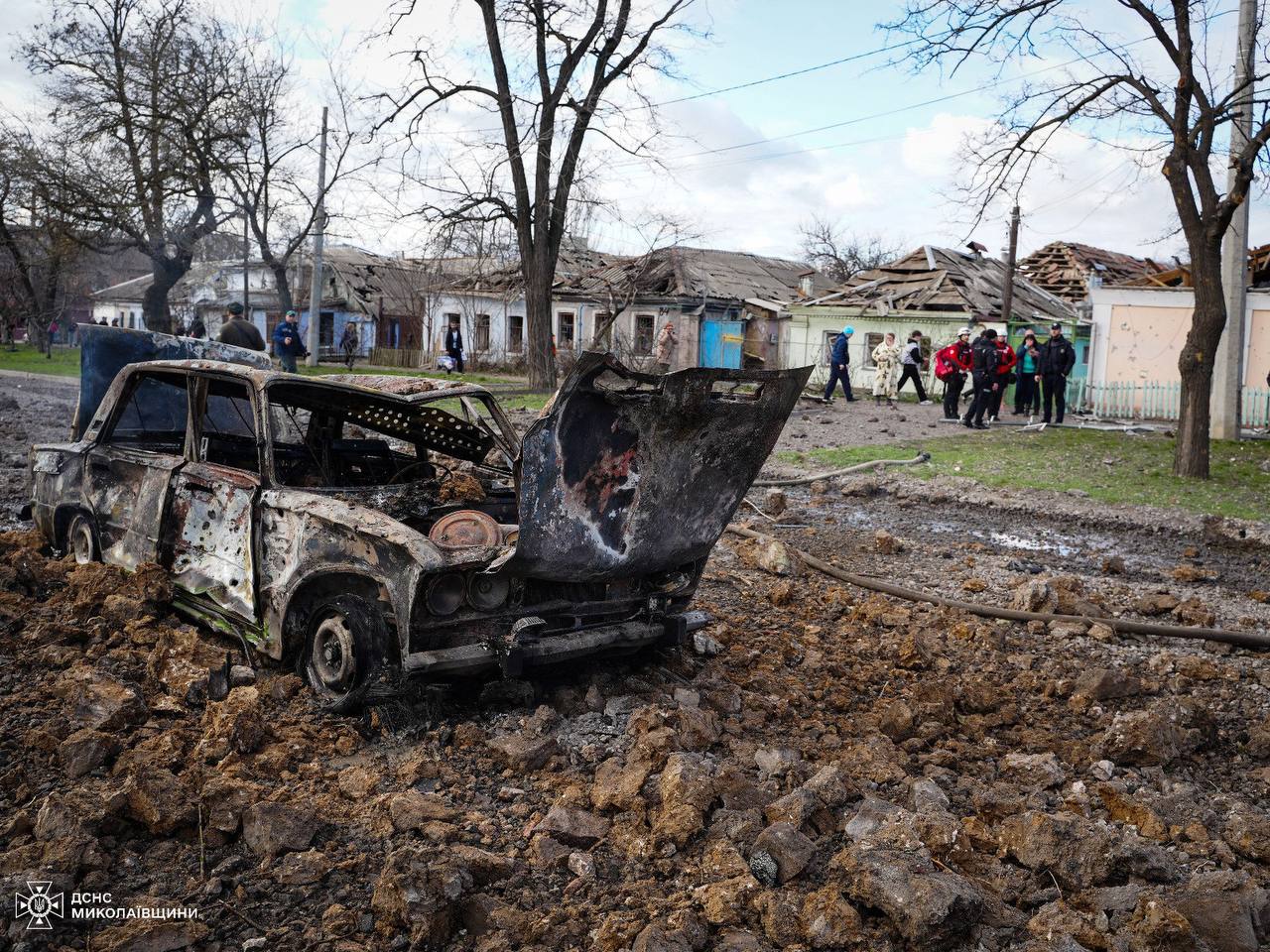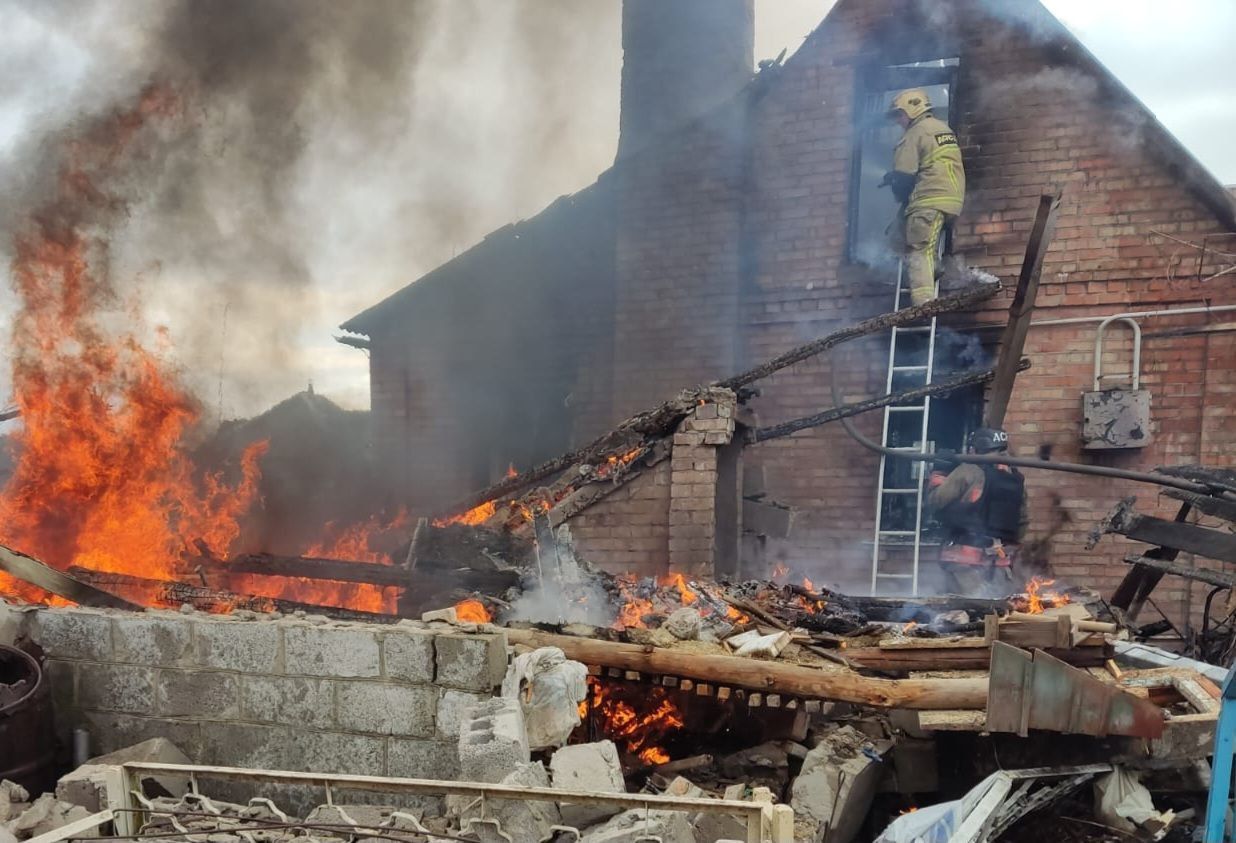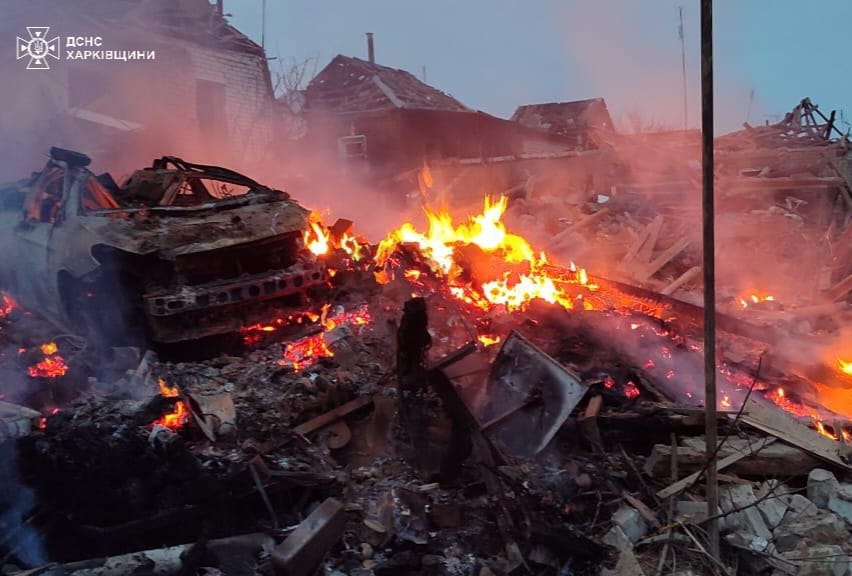Daily Flyer - March 18, 2024
A voice of Ukraine to the West

Russian March 17 attack on Mykolaiv kills 1, injures 9, including 2 children

Russia's March 17 missile attack against Ukraine's southern city of Mykolaiv killed one person and injured nine, including two children, according to the latest update by the regional governor published on March 18.
Russian forces on March 17 hit an infrastructure facility in Mykolaiv with two ballistic missiles, likely of Iskander-M type, according to Governor Vitalii Kim.
Mykolaiv Mayor Oleksandr Sienkevych earlier said that over 10 multistory buildings and 50 private houses had suffered damages, as well as many cars.
The city's outdoor lighting network and tram tracks were also damaged by the attack, Kim reported on Telegram.
The wounded are reportedly receiving medical assistance.
Kim previously said Russia had carried out the attack from the same place as its previous strike against the major city of Odesa just 150 kilometers westward on March 15, where 21 were killed and more than 70 were wounded.
Russian troops had launched the March 15 strike using Iskander-M ballistic missiles from occupied Crimea, according to Ukraine's Southern Defense Forces.
Over the past few weeks, Russia has ramped up its deadly attacks against civilians, especially in the south of Ukraine.ChatGPTChatGPT
On March 17, a missile attack by Russian forces targeted the southern Ukrainian city of Mykolaiv, resulting in the death of one person and injuring nine others, including two children, according to an update from the regional governor published on March 18.
Governor Vitalii Kim reported that Russian forces struck an infrastructure facility in Mykolaiv with two ballistic missiles, likely of the Iskander-M type.
The attack caused significant damage to the city, with over 10 multistory buildings and 50 private houses suffering damages, along with numerous vehicles. Additionally, the city's outdoor lighting network and tram tracks were also affected.
The wounded individuals are currently receiving medical assistance for their injuries.
Kim noted that Russia had carried out the attack from the same location as a previous strike against the major city of Odesa, which occurred just 150 kilometers westward on March 15. In that attack, 21 people were killed, and more than 70 were wounded.
The use of Iskander-M ballistic missiles, particularly in densely populated urban areas, underscores the increasing brutality of Russia's attacks against civilians in southern Ukraine in recent weeks.
Russia attacked Nikopol

On March 17, Nikopol in Dnipropetrovsk Oblast was subjected to Russian drone attacks, resulting in injuries to five people, as reported by Regional Governor Serhii Lysak.
During the morning, two kamikaze drones targeted a gas station, causing damage to equipment and a truck. Three men, aged 32, 43, and 67, sustained injuries as a result of this attack.
Later in the day, a series of eight drone strikes hit the city, injuring two additional people, aged 26 and 65.
While three of the victims from the earlier attacks are currently recovering at home, no information was provided regarding the status of the other two victims.
The attacks caused damage to an infrastructure facility, a five-story building, and two homes. Additionally, a power line in the nearby village of Pokrovska was damaged as well.
Nikopol, located on the banks of the dried-up Kakhovka Reservoir and across from Russian-occupied Enerhodar and the Zaporizhzhia Nuclear Power Plant, has been a frequent target of Russian attacks.
The strikes on Nikopol on March 17 injured two elderly residents and resulted in damage to more than 30 homes, highlighting the ongoing threat faced by the city and its residents.
Putin reiterates war goals, again threatens West in post-election comments
Russian President Vladimir Putin reaffirmed his objectives for the full-scale war in Ukraine, celebrated his electoral "victory," and issued warnings to the West in remarks made on March 18 following the conclusion of Russia's pseudo-democratic presidential election.
Putin comfortably secured another term in a highly controlled presidential election on March 17, where meaningful opposition candidates were barred from participating. Adrienne Watson, a spokesperson for U.S. President Joe Biden’s National Security Council, criticized the election as "obviously not free nor fair," according to the New York Times.
Putin expressed gratitude to his supporters for ensuring his reelection with 87.2% of the vote, stating that the results indicated Russia's adherence to the "right path." Among his top priorities for his next term are addressing issues related to Russia's full-scale war against Ukraine and bolstering the country's military and defense capabilities.
Addressing speculation about the potential deployment of Western troops in Ukraine, Putin warned of the possibility of direct conflict between Russia and NATO, which he described as "one step away from a full-scale WWIII." He expressed skepticism about anyone being interested in such a scenario.
Putin also suggested the need for a "sanitary zone" on Ukrainian territory in response to attacks by pro-Kyiv Russian militias and alleged drone strikes within Russian borders. He described such a zone as difficult to overcome, although the size remained uncertain.
In an unusual move, Putin mentioned the late Russian opposition leader Alexei Navalny, referring to his death in February as an "unfortunate incident" and a "sad event." Putin compared Navalny's death to deaths in Western prisons, including the U.S., while falsely asserting that Russian elections are more democratic than those in the U.S.
Putin's comments come amid ongoing tensions between Russia and the West over the war in Ukraine, with Putin using rhetoric to underscore his defiance and portray Russia as resolute in the face of external pressure. However, international observers have criticized Russia's electoral process and raised concerns about human rights violations and political freedoms in the country.
Russia launched attacks against several regions, hits infrastructure

Russian troops launched attacks against multiple Ukrainian regions, including Sumy and Kharkiv oblasts, on the evening of March 17, according to local authorities.
The mayor of Konotop in Sumy Oblast, Artem Semenikhin, reported that Russian troops struck Konotop twice around 9 p.m. local time, damaging some infrastructure. However, he did not provide specific details regarding the attack.
Earlier in the day, Sumy was targeted by Russian forces, with attacks hitting undisclosed infrastructure sites in the northern city. Fortunately, there were no reported casualties, as confirmed by local authorities.
In Kharkiv Oblast, the town of Vovchansk was attacked by Russian forces using aerial bombs, resulting in at least one injury, as reported by the State Emergency Service around 8 p.m. local time. The attack caused a fire spanning over 200 square meters in a residential area, damaging several buildings and vehicles.
Kharkiv Oblast's border regions have been subject to daily attacks by Russian forces, with incidents on March 16 injuring two men and damaging critical infrastructure, according to Governor Oleh Syniehubov.
These attacks on northern Ukraine coincide with intensified strikes by Russian troops against civilians across the country, particularly in the southern city of Odesa.
On March 17, Mykolaiv in southern Ukraine was targeted twice by Russian forces using missiles. Regional Governor Vitalii Kim reported that the number of injured individuals rose to eight, including a nine-year-old child, by around 8:30 p.m. local time. Tragically, a 50-year-old man succumbed to injuries sustained in the attack, Kim confirmed.
Kim noted that Russia launched the attack from the same location as a previous strike on the major city of Odesa, which occurred just 150 kilometers to the west on March 15, resulting in 21 fatalities and over 70 injuries.

